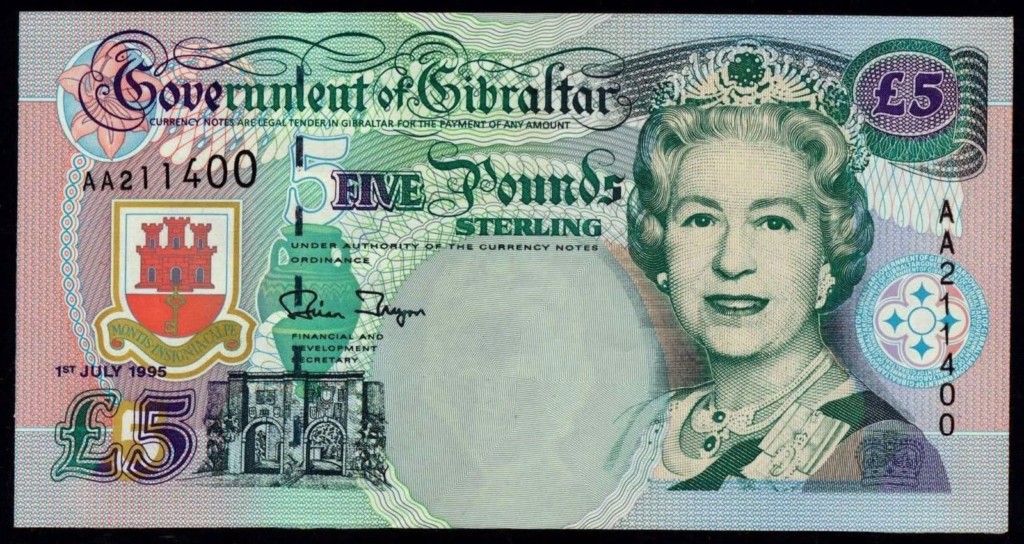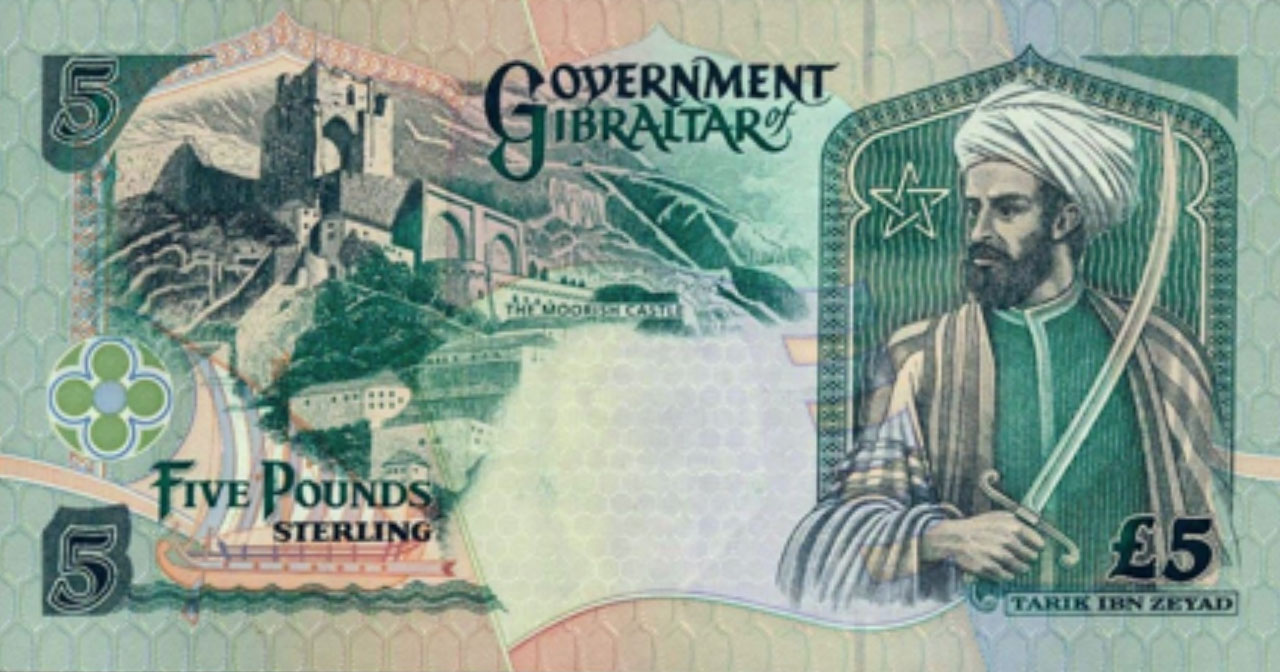“O My servants, I have made oppression unlawful for Me and unlawful for you, so do not commit oppression against one another…”[1]
The Strait of Gibraltar is one of the busiest shipping lanes in the world, with ships passing between the Mediterranean Sea and the Atlantic Ocean.
With each of these voyages, the passengers will have to go past, or even stop at, Gibraltar, which lies at the southwestern corner of Europe, opposite to Morocco where there is no escaping the great big mountain of Gibraltar. However, what does Gibraltar mean and from where does it derive its name? Gibraltar is taken from the Arabic ‘Jabal Tāriq‘ meaning ‘Mountain of Tāriq’—Tāriq Ibn Ziyād.
What was it however that brought this dazzling young Muslim general from Africa to the heart of Europe?
Background
Though there are a number of accounts relating to his ancestry, it is widely believed that Tāriq Ibn Ziyād was born in the tribe of Nafzaw (a Berber tribe in Algeria).[2]
There is no definitive evidence on his ethnic background. What we do know was that he was a Berber. Berbers live in scattered communities across North Africa and West Africa which today includes Morocco, Algeria, Tunisia, Libya, Egypt, Mali, Niger, and Mauretania. You therefore have light skinned as well as darker skinned Berbers. Whether or not Tāriq was black, one thing is for sure; many of his soldiers were depicted with racial connotations in the famous French poem, ‘The Song of Roland’.
Tāriq was a freed slave who, along with his father, is said to have embraced Islām since the days of the famous Muslim General, and liberator of Ifrīqiyah (today North Africa), ‘Uqbah ibn Nāfi’ al-Fihri. Islām entered North Africa through Egypt which was opened by the great companion of the Messenger of Allāh (sallAllāhu ‘alayhi wasallam), ‘Amr bin al-Ās (radiy Allāhu ’anhu). His commander, ‘Uqbah, then continued right across what is now Libya, Tunisia, Algeria and then the furthest west, Morocco. The famous incident here then took place where it is reported that ‘Uqbah continued to gallop his horse past Morocco into the Atlantic Ocean saying:
“Oh Allāh, had it not been for the sea, I would have continued to gallop with my horse until the entire earth was opened to Islām.”
Tāriq was still a teenager when he joined the Muslim army in North Africa. Despite his young age, he showed great courage and enthusiasm for the faith and for its spread in the hearts of people.
He won the trust of the General, Mūsā ibn Nusair, who appointed him Governor of Tangier at the behest of Khalīfa of the time, Walīd ibn ‘Abd al-Malik.
Mūsā of course was the son of Nusair who was a former Christian and among those taken captive by the Commander of the Muslim army. This was of course the veteran Companion among Muslim soldiers, the ‘Sword of Allāh’ unleashed against the enemies of Islām, Khālid ibn Walīd (radiy Allāhu ’anhu), after Ayn al-Tamr in Persia surrendered to him in 633 (12-15AH). This just shows quite how early in the history of Islām Tāriq featured.
Iberia
Across the shores in the Iberian Peninsula in what we today know as Spain, the Visigoths (the Goths) had been in power since the early fifth century.
The Goths subscribed to Arianism and became Catholics in the late sixth century during the reign of King Reccared (586–601). During this period, a number of Church councils were held. Church councils usually took place at intervals to decide on matters of immediate concern to local Christians.
These series of councils have come to be known as the ‘Toledo Councils’, taking their name from the city in Spain in which they were held, which was also the capital of Gothic Spain.
A group of Jews, known as the Sephardic Jews, also resided in the Iberian Peninsula at this time.
The series of councils held at Toledo towards the end of the sixth century, and during the seventh century adopted a radical goal of seeking to uproot Judaism entirely.
At the Third Council of Toledo (589), it was decreed that children of a mixed marriage had to be Christians and that Jews could not be appointed to positions of authority.[3]
Many more restrictions were placed on the Jews from successive Councils relating to the Sabbath, dietary laws, marriage laws and circumcising their young until the Seventeenth Council in 694 where all of their property was to be forfeited to the king and children over the age of seven were to be taken from them and raised as Christians.[4]
Life in Visigothic Spain was grim and deteriorated further when King Roderic took the reins in or around 710. The tyrannical and oppressive rule under him saw both Jews and non-Jews alike being persecuted.
It was in this period that the Christian Governor of Cueta, Julian, called upon the Muslims in North Africa for help. It is reported that King Reccared had dishonoured Julian’s daughter.[5]
He met with Mūsā b. Nusair who in turn sent Tarif ibn Malik on a reconnaissance mission to survey the coastline of Spain. Tarif landed at the town which still bears his name today – ‘Tarifa’. After a successful mission, Mūsā decided that it was time for the Muslims to lend Julian the support he desired. Accordingly, he tasked his courageous young Commander, Tāriq ibn Ziyād, to head an army of 7,000 men (12,000 in other accounts). Tāriq’s age is reported to have been between 19-23 at the time.
Some historians have stated that Julian supplied the ships to transport the Muslims across the shore so as to avoid detection.
Whatever the case, the first spot that Tāriq and his army landed on was in what we now call Gibraltar. It was here that the young, charismatic general gave one of the most famous military speeches, known as the ‘Khutbah (sermon) of Tāriq’, which was as follows:
“O my warriors, where will you flee? Behind you is the sea, before you, the enemy.
By Allāh! There is no salvation for you but in your courage and perseverance.
Consider your situation; here you are on this island like so many orphans cast upon the world.
You will soon be met by a powerful enemy, surrounding you on all sides like the infuriated billows of a violent sea, and sending against you countless warriors, drowned in steel, and provided with every store and description of arms.
What can you oppose them with? You have no other weapons than your swords, no provisions but those that you may snatch from the hands of your enemies…
Banish all fear from your hearts, trust that victory shall be ours, and that the barbarian king will not be able to withstand the shock of our arms…
Do not think I impose upon you a task from which I shrink myself, or that I try to conceal from you the dangers attending this expedition…
And do not imagine that while I speak to you, I mean not to act as I speak, for as my interest in this is greater, so will my behaviour on this occasion surpass yours…
for it is my intention, on the meeting of the two hosts, to attack the Christian tyrant Roderic and kill him with my own hand, inshā’Allāh (if God wills).
When you see me bearing against him, charge along with me; if I kill him, the victory is ours; if I am killed before I reach him, do not trouble yourselves about me, but fight as if I were still alive and among you, and follow up my purpose… If, however, I should be killed, after inflicting death upon their king, appoint a man from among you who unites both courage and experience, and may command you in this emergency, and follow up the success. If you follow my instructions, we are sure of victory.”[6]
It is reported that on the journey between Africa and Spain, Tāriq had a dream of the Messenger of Allāh (sall Allāhu ‘alayhi wa sallam) where it is reported that the Messenger of Allāh (sall Allāhu ‘alayhi wa sallam) said to him:
“Take courage, O Tāriq! And accomplish what you are destined to perform.”[7]
It is stated that it was for this reason that Tāriq was confident of victory as apparent from his speech for he knew full well the hadīth of the Messenger of Allāh (sall Allāhu ‘alayhi wa sallam) which teaches us that Shaytān cannot take his form in a dream and as such, if you dreamt of him, it was indeed him.[8]
The Battle
The army responded to Tāriq’s battle speech by bursting with great enthusiasm to meet the enemy.
Julian and men loyal to him acted as guides through the land for the Muslims and also ensured that the people were informed that Muslims had come to liberate them from Visigoth tyranny. For the Spanish population of Jews in particular, the Muslims were seen as saviours and the Jews had in fact fought alongside them.
There are numerous accounts telling of the contributions of the Jews. Historian Gabriel Jackson states that,
“the Muslims were welcomed by a large proportion of the ruling aristocracy and the Jews.”[9]
The Jewish historian Nahum Slouschz stated:
“The victorious Muslims in 711 were everywhere supported by the Jews to whom the Muslims confided for safekeeping every city which they conquered.“[10]
In fact, Slouschz went as far as to say that Tāriq was Jewish, such was the high regard with which he was considered by Jews.
The decisive battle took place in what has come to be known as the Battle of Guadalete. The Arabic sources traditionally give Roderic 30,000 – 100,000 troops. Whatever the case, it was considerably more than the 7,000 – 12,000 of the Muslim army. The battle was a resounding victory for the Muslims and King Roderic and the oppressive Goths were written away from the pages of history, and this set the beginning of the almost eight-century long Muslim rule of Spain which was from here to be known as al-Andalus, until 1492 when Granada, the last stronghold of the Muslims, was lost to Christians as part of the Reconquista, the wider crusades.
The End of Tāriq
Tāriq and his army continued to liberate Spain, and many were receptive to the Muslims. As the British Arabist Sir Thomas Walker Arnold wrote in 1896, in ‘The Preaching of Islam’:
“Of forced conversion…, we hear nothing. Indeed, it was probably in a great measure their tolerant attitude towards the Christian religion that facilitated their rapid acquisition of the country.“
Just as the conquest and liberation of Spain was near complete, he and Mūsā received some news. Just as the politics of the Visigoths provided Tāriq with his way into al-Andalus, the politics of the Umayyads sent him on his way out. Tāriq and Mūsā were summoned to the capital of the Khilāfah, Damascus, with some spoils from the liberation. On their journey, there was news that the Khalīfah, Walīd Ibn ‘Abd al-Malik was about to die. His brother, Sulaymān ibn ‘Abd al-Malik then took the reins and became Khalīfah. It is not entirely clear why, but it seems that he had different priorities than his predecessor, and seeking to make his mark, Sulaymān decided to strip Mūsā and Tāriq of their duties, and from here on, the hero of the hour, Tāriq Ibn Ziyād fades into the background and we hear nothing further of him.
Interestingly Sulaymān, who was to die without having an heir old enough to reign, appointed his cousin, ‘Umar ibn Abd al-‘Azīz, who was to go on to become one of the greatest khalīfahs since the period of the Rāshidūn (the ‘Righly Guided’ Abū Bakr, ‘Umar, Uthmān and ‘Ali radiy Allāhu ‘anhum). Like them, he refused to accept the appointment except through their Islamically-mandated method, of pledges of allegiance from the Muslims and their representatives, earning him the title of the ‘Fifth Rightly Guided Khalīfah’.
Points to Note:
When you think of the situation of the Jews at the time who were having the pharaohnic experience with their children being taken away from them, and forcibly being converted to Christianity, the Muslim army were without a shadow of a doubt seen as liberators rather than as invaders.
Even Tāriq’s battle speech gives us an insight into the motivations of the Muslims where we find reference to Roderic as “barabaric” and a “tyrant” King – this was not on account of Roderic’s treatment of any Muslims but how he dealt with his subjects, particularly the Jews. Most of the Jews in the world were now inhabitants of a single Islamic State and thus, for the first time since the beginning of their diaspora, the Muslim state in Spain brought Jews into a single cultural, economic, and political system which gave rise to the Jewish ‘Golden Age’, particularly after 912, during the reign of ‘Abd al-Rahmān III and his son, al-Hakam II. Jewish economic, philosophical and intellectual expansion here was unparalleled.
During ‘Abd al-Rahmān’s term of power, the scholar Moses ben Enoch was appointed Rabbi of Cordoba, and as a consequence al-Andalus became the international centre of Rabbinical studies. Tyrants such as El-Sisi of Egypt today would do well to remember these lessons – his suppression of Islām and Muslims has seen a number of notable Islamic historical figures removed from school-books,[11] such as ‘Uqbah ibn Nāfi’, Tāriq ibn Ziyād and Salāh al-Dīn al-Ayyūbi, under the pretext that these figures “incite violence”.
The Muslims did not attack Roderic because he was seen as a threat to the Muslims or to their interests, but rather to deliver a people from oppression since they understood full well the teachings in Islām concerning oppression and how detested it is in the sight of Allāh, as set out from the beginning of this article.
There are unfortunately many today who seek to exploit and misapply the teachings of the Messenger of Allāh’s (sall Allāhu ‘alayhi wa sallam), such as the concept of the Hilf al-Fudūl; an alliance of nobility which saw him, before prophethood, ally with others to assist a man who had been wronged and oppressed. The alliance was set up to assist a man cheated in business by one of the Quraysh’s own elite. The Messenger of Allāh (sall Allāhu ‘alayhi wa sallam) later stated—after prophethood—that even if the Quraysh called him to be involved in such an alliance then, he would readily accept, i.e. to work with non-Muslims for issues of social justice and against oppression. For Muslims today to work with and praise open oppressors and tyrants, calling it an “alliance of nobility”,[12] is an insult to the mission of the Prophet (sall Allāhu ‘alayhi wa sallam), particularly with those actively involved in oppressing Muslims in Yemen and Palestine—two communities beloved to the Messenger of Allāh. Tāriq’s cooperation in assisting non-Muslims to deliver them from oppression is however more akin to the Hilf al-Fudūl – alliance of nobility – of the Messenger of Allāh’s (sall Allāhu ‘alayhi wa sallam).
The actions of Tāriq and his army also showed that the noble maxim of jihād is used not just to repel oppression against Muslims, but non-Muslims also. With justice as their armour, and mercy as their shield, they cleansed the Iberian Peninsula of tyranny and laid the foundations for an amazing period of history for we know that within a century, the Umayyids had developed a civilisation based in Cordoba that surpassed that of any on earth and the state was the most populous, cultured, and industrious land of all Europe, remaining so for centuries and catalysing the intellectual, philosophical and technological growth of Europeans beyond its borders.
As a side point, the story of Tāriq also shows us that a person’s ethnic and social status did not form an obstacle to their success in Islām and the Muslim community – Tāriq was a new convert to Islām from the Berber tribe and was said to be a freed slave. This shows that Islām provided high status to all those wishing to strive for it. We are unlikely to find anything similar to this concept of equality and social mobility anywhere in the history of the West.
Tāriq Ibn Ziyād today
Today, a military base located south of Doha, Qatar, is named ‘Tāriq ibn Ziyād’. Also, Gibraltar is British overseas territory and in 1995, Queen Elizabeth II was honoured by having her face printed on the opposite side of the £5 note on which appeared a depiction of Tāriq with sword in hand and a boat to tell the tale of the voyage he had undertaken.


Tāriq has left behind an amazing legacy despite his young age. He laid the foundation for Muslim rule in Spain which started in 711, and ended in 1492 which amounts to 781 yrs. To put that into perspective, if Muslims took control of Spain in 1492 (when they lost control), they would continue to rule until the year 2273.
What is actually remarkable about Tāriq’s life is that unlike many other such luminaries in our history, very little is really known about his life before and after the liberation of Spain – it is as if Allāh had put him on this earth just for this noble deed which we all remember him for.
As for Tāriq, whilst he may have died in obscurity, there are some men who on the account of their noble deeds, Allāh makes their name become immortalised which is why today, more than 1300 years later, Tāriq’s name continues to shine and stands firm and tall like the very mountain which continues to carry his name. Tāriq also continues to remain a source of inspiration for many who yearn for some sign of life in a community that is today cowed and dead.
The answer to the question as to whether Tāriq was an invader or a liberator, I believe is clear, however I will let you be the judge of that.
[donationbanner]
Source: www.islam21c.com
Notes:
[1] Muslim
[2] Ibn Idhari
[3] The Goths in Spain, Thompson, E. A
[4] Jews of Spain: A History of the Sephardic Experience, Jane S Gerber
[5] Ibn ‘Abd al-Hakam. Charles Cutler Torrey, ed. Kitāb futuḥ misr wa akbārahā: The History of the Conquests of Egypt, North Africa, and Spain
[6] Makkari, The History of the Mohammedan Dynasties in Spain, Vol. 1
[7] Ibn Khaldun
[8] Bukhari
[9] The Making of Medieval Spain, Gabriel Jackson
[10] The Jews of North Africa, H. Z. Hirschberg
[11] https://www.middleeastmonitor.com/20170509-attacking-al-azhar-is-a-gateway-to-attacking-islam/
[12] https://muslimmatters.org/2018/12/17/keeping-our-eye-on-the-ball-the-problem-with-the-uae-summit/










Definitely a liberator and a very honourable courageous and selfless one.